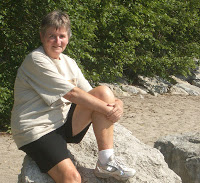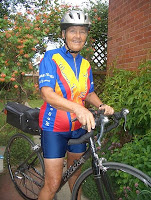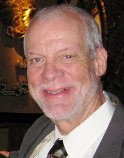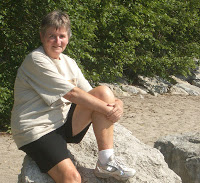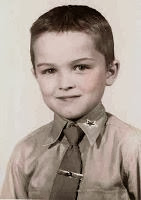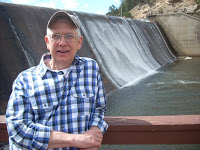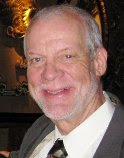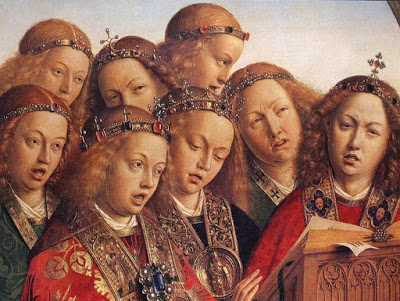It isn’t just my age that makes it seem like many things that surely should be are not a piece of cake these days. Oh yes, I forget where I put things and logic occasionally skips a beat, but I’m talking about things made more complicated than they need to be by others, not myself.
Betsy and I regretfully sold our old camper van a few months ago. It was eating money and parts were becoming too hard to find. The man who bought it apparently drove it home on a toll road because a few weeks later we got a bill from the toll company for $3.20. Now even I am not going to quibble over three bucks, so I mailed the check and forgot all about it. Piece of cake! A few weeks later we received another bill for the same vehicle, time, and date, from a differently named company. It seems the toll collection passed to a different company without, surprise surprise, much communication. Other than the fact that this bill was mysteriously thirty cents higher, the bills were identical so we printed off a copy of the processed check, mailed it and forgot about it. Just last week we got a second bill from the toll company for sixty unexplained cents. Honestly! Can’t someone program their computer not to generate bills for amounts below a dollar? I am tempted to tape sixty pennies to a sheet of paper, but I know the computer wouldn’t know what to do with that. The next thing we’d receive would be a bill for $20.60 after they added a twenty dollar late charge. So I guess I’ll just write a check. I can honestly say I have never written a check for less than a dollar, but then, a woman in her seventies should probably be grateful for any new experience!
Have you noticed how people these days have developed the skill of completely ignoring evidence right in front of their eyes? Betsy’s granddaughter Lisi owed us some money and was paying it back via automated monthly checks mailed to us from her bank. Piece of cake! When she later closed out that account, the checks kept right on coming. After three monthly checks we should not have had, we visited a local branch of the bank and explained the situation. Yes, the young man agreed, that account was indeed closed and contained no money, therefore we would receive no checks. I pounded my poor pinkie on the paper until it pained me. There were the checks. Three of them. Keeping his gaze fixed firmly on the computer screen he continued to nod his agreement that the account was closed and empty and no checks could be issued. He simply refused to see the evidence before him. Really! What kind of bank continues to send out checks from a closed account with no money in it??
In fact, closing accounts just seems to cause problems. I closed out a savings account, withdrawing all the money. The next month I got a statement claiming I had thirty-nine cents in that account. I called the branch, but neither they nor I had any explanation for the thirty-nine cents.
“Oh well,” I said, “Just cut a check for the amount and toss it in the trash, then close the account.”
She explained that she could not do that, as the computer would not create checks for less than a dollar.
“Can I just pop in and you give me the cash then?”
Cash, all thirty-nine cents of it, was apparently, for some incomprehensible reason, not an option. I gave up.
After a couple of months my thirty-nine cent statement was accompanied by a letter expounding upon the joys of paperless banking. Yes! I thought, hastily completing the authorization. At least I would no longer be irritated every month by this three-page documentation of my thirty-nine
cents. I would never have to go on-line to look at it; it would be forgotten. Piece of cake! After the second month of continuing to receive the mailed statement, I phoned the 24 hour customer service number. Definitely, I was told, since I had signed up for paperless banking I no longer received hard-copy statements. I assured her that I was holding one in my hand at that very moment, and she continued to affirm that I no longer received statements by mail. I gave up, but the following month I took my apparently imaginary paper statement to the local branch and explained my problem. Eyes glued to the screen, the young woman agreed wholeheartedly with me. Yes, I had signed up for paperless accounts and no longer received hard copy. No amount of waving pages at her could distract her attention from that screen. I gave up. Now, each month as I watch my three-page proof of thirty-nine cents die an ignominious death in the shredder, I remind myself that I no longer receive hard copy.
I find, more and more, that I fail to understand what people are telling me. And no, it’s not because I can’t hear, or that English is their second language. No, English, as far as I know, is their first language. Yet they somehow speak it in a way I cannot follow. I understand the words, but the way they put them together makes no sense to me. Betsy recently e-mailed a very simple question to our insurance company. The reply, and I promise you this is a direct quote, read, “Yes your property is currently covered (but not now).” How in God’s name is a person to interpret that? How can something be currently but not now?
I think hell on earth must be struggling, from half way around the world, to deal helpfully and politely in a relatively unfamiliar language, with an angry American trying to set up his Smart TV. A few years ago, Betsy and I bought a new flat-screen TV, and, for the first time, splurged on Cable. The Comcast techie rushed off after a very speedy installation, leaving me no chance to ask questions. I could not figure out where to attach the DVD player, so in desperation I called the HELP number. After many minuets on hold and many more in conversation with a very frustrated young man, both he and I had had just about enough. His voice had risen an octave over the time we had spent together, and I was beginning to doubt his chances of reaching his twenty-first birthday without a heart attack.
“No no no! You are not listening to me. How then can I help if you do not listen?”
“I’m sorry. I am listening. Really.”
Like a recalcitrant three year old.
“Now.” He sighed; at the end of his tether.
“We are at the very top, on the left side of the television. This TV is not a person. It is not the left side of it of which we speak. No! It is your left. You are facing the screen. Yes?”
Without waiting for confirmation he plunged on.
“You are reaching out your left hand and placing it on the top of the side of the television that is there, closest to your exact left hand. Very good! Now, the first connection on top of all the connections on that very side. You see it. It is being very red and you do not use it.”
I replied that actually it was yellow, but no I did not use it.
“It is red!” he said, dismissively. “Now you move down your exact left hand and the next one is yellow and you do not use it.”
I saw little point in saying that it was white, and we moved rapidly on to the next which was supposedly white but was in fact red. Why wasn’t my TV like his picture of it? We had confirmed the model number.
“Now,” he said with an air of accomplishment, “in the next one below under your exact left hand is the unused white into which you place the white of your DVD cable.
I willed the thick cable already plugged into the dirty-mustard yellow connection to disappear, but it remained.
“Something’s already in that one. The cable box. Or maybe the DVR …” I said doubtfully, peering into the dark corner behind the TV and the tanglement of wires and cables nesting there.
“No no no! You are indeed not following me!”
I thanked him for his time and hung up.
And you know, among the endless frustrations of modern life, occasionally someone appears who reinvigorates your faith in people and even technology. Forgetting the DVD player, I worked on getting the DVR to work. Having failed on that score too, I called Comcast where the phone techie agreed that it was not working correctly and scheduled a real person techie visit in two days. She strode into the living room, an obvious lesbian wearing her overstuffed tool belt with pride. After a cursory glance, she began ripping out cables and wires and dumping them in a tangled mangled heap on the carpet. She scooped up the messy bundle and retreated to her van, returning with new, neatly coiled and labeled, cables and wires and connectors. In what seemed like no time she was demonstrating to me that the TV worked, the DVD player worked, the cable box worked, and the DVR worked. She gathered up her tools and waved a cheery goodbye.
Piece of cake!
© March 2015
About the Author
I was born and raised in England. After graduation from college there, I moved to the U.S. and, having discovered Colorado, never left. I have lived in the Denver-Boulder area since 1965, working for 30 years at IBM. I married, raised four stepchildren, then got divorced after finally, in my forties, accepting myself as a lesbian. I have now been with my wonderful partner Betsy for 25 years.
